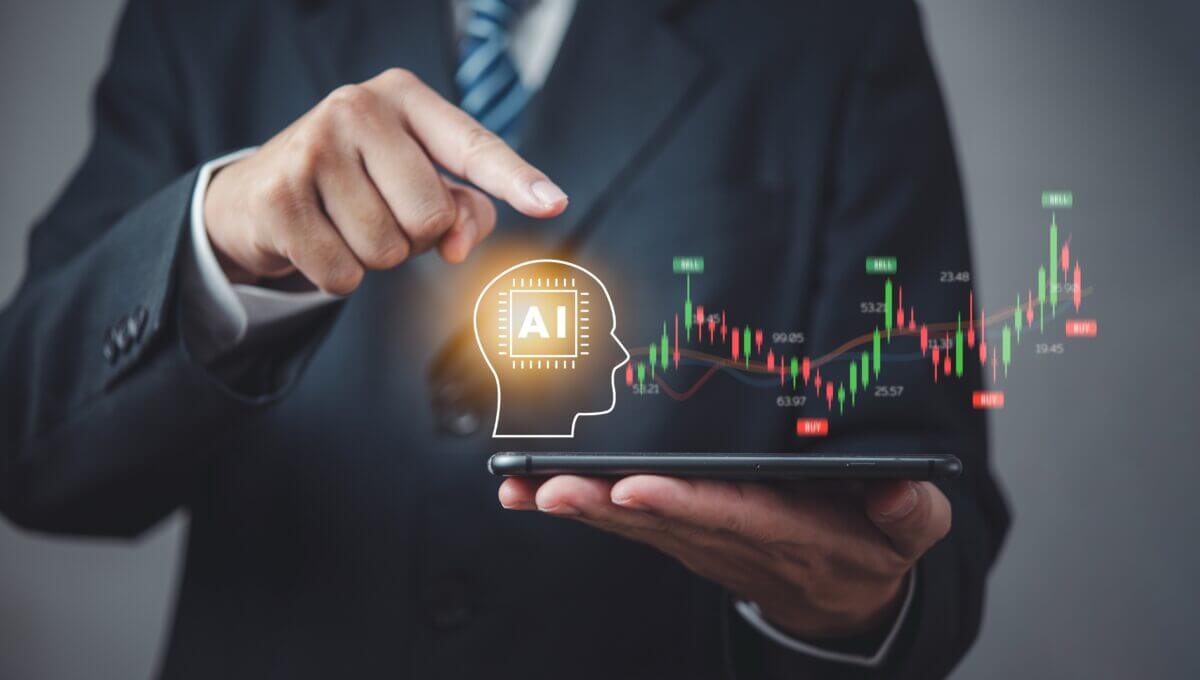
AI for Forex Trading: Can Machines Outsmart the Market?
The foreign exchange (Forex) market is a bustling hub where currencies are traded around the clock, five days a week.
It’s known for its constant changes and high levels of unpredictability. To navigate this complex world, Forex trading has increasingly turned to artificial intelligence (AI) and machine learning algorithms.
There are numerous inquiries regarding the importance of AI for Forex trading.
These technologies help traders analyze huge amounts of data and make smarter trading decisions. Let’s dive into how AI changes forex trading and whether machines can truly outsmart the market.
Importance of AI for Forex trading
AI in Forex trading involves using computer algorithms that mimic human decision-making processes. These algorithms sift through market data, identify patterns, and execute trades automatically. They use various techniques like machine learning, neural networks, and statistical analysis to improve their strategies continuously.
One major advantage of AI in Forex trading is its ability to process vast amounts of data quickly and accurately. Unlike humans, AI systems can analyze multiple currency pairs, news events, economic indicators, and market sentiment in real-time. This helps them spot trading opportunities and execute trades without delay.
Machine learning algorithms are crucial in AI-based trading systems. They learn from historical data and adjust their strategies accordingly. By recognizing patterns and correlations in past market behaviour, these algorithms can predict future price movements with a certain level of accuracy.
The evolution of AI in Forex trading

AI technology has advanced greatly in Forex trading. In the early stages, AI-based trading systems relied on simple rule-based algorithms, which followed predefined trading rules but lacked adaptability.
Nevertheless, advancements in machine learning and deep learning have led to the development of more sophisticated and flexible trading models.
Presently, AI-powered trading platforms use advanced algorithms to analyze market data on a large scale and at high speeds. They combine technical indicators, fundamental analysis, and sentiment analysis to generate trading signals and execute trades automatically.
Besides, AI algorithms can continuously learn and improve from new data. This adaptability allows them to adjust to changing market conditions and optimize their strategies over time. It gives AI-based trading systems an edge over traditional approaches, as they can quickly identify and capitalize on profitable opportunities in the market.
Challenges and limitations
While AI has revolutionized Forex trading, it’s not without challenges. One major challenge is the unpredictability of financial markets. Despite AI advancements, Forex markets can still be influenced by unpredictable events like geopolitical tensions and economic crises, leading to unexpected price movements.
Let’s not forget that AI algorithms aren’t immune from challenges. Biases in training data or flawed assumptions in algorithm design can lead to inaccurate predictions or suboptimal trading decisions. Overfitting is another challenge, where algorithms memorize past data instead of generalizing from it, resulting in poor performance on unseen data.
Regulatory scrutiny is also a concern for AI-based trading systems. Regulators worry about risks like market manipulation and flash crashes. There is growing pressure on Forex brokers and trading firms to ensure transparency, accountability, and risk management in their AI-driven trading activities.
Can machines outsmart the market?

The million-dollar question is whether machines can outsmart the market. While AI-based trading systems have shown impressive capabilities, they’re not infallible. Financial markets are influenced by human emotions and unforeseen events, which can defy rational analysis and prediction.
Moreover, market dynamics are incredibly complex and random, making it challenging for AI algorithms to consistently outperform the market long-term. Nonetheless, AI-based trading systems can still provide significant value by augmenting traders’ decision-making processes and reducing cognitive biases.
AI tools for Forex trading
As can be seen from the information provided above, it is hard to overestimate the significance of AI for Forex trading.
Now, let’s discuss useful tools. We can start with the GPS Forex Robot.
The GPS Forex Robot is an automated trading system designed for the Forex market. Developed by Mark Larsen and his team, it uses advanced algorithms and technical analysis to identify trading opportunities and execute trades automatically.
One standout feature of the GPS Forex Robot is its adaptability to changing market conditions. It’s equipped with built-in strategies that can adjust to various market environments, including ranging, trending, and volatile conditions. This flexibility allows the robot to remain profitable in different scenarios, minimizing the impact of sudden price movements or unexpected events.
Besides, it incorporates risk management principles to protect traders’ capital and maximize returns. It uses stop-loss and take-profit levels to manage trade exits and mitigate potential losses. The system can also adjust position sizes based on account size and risk tolerance, ensuring traders can trade with confidence while preserving capital.
Backed by extensive testing and optimization, the GPS Forex Robot aims to deliver consistent profits over the long term. Developers provide regular updates and support to ensure the robot remains effective in evolving market conditions.
Forex VPS and ZuluTrade

A Forex VPS (virtual private server) acts as a reliable connection between your trading terminal and the broader trading network.
Imagine using MT4 on your home computer – you are connected to the standard trading network where your trades are executed. But what if there’s a power outage, loss of internet connection, system glitch, or your computer freezes?
You could lose the ability to manage your trades in an instant, potentially leading to significant losses in a fast-moving market.
Forex VPS hosting solves this problem by keeping you connected and allowing you to continue trading, even in the face of unforeseen failures. It provides safety and security against system disruptions, serving not only as an automation tool but also as a critical component of a trader’s risk management strategy.
ZuluTrade is a social trading platform that democratizes Forex trading. Launched in 2007, it allows novice traders to benefit from the expertise of experienced traders without needing advanced skills.
Operating on a “copy trading” model, ZuluTrade lets users replicate trades from experienced traders in their own brokerage accounts. With a diverse range of signal providers, users can choose those with trading strategies and risk profiles that align with their preferences.
ZuluTrade provides comprehensive performance statistics, including historical performance and risk metrics, to help users make informed decisions. The platform also offers advanced risk management tools, such as customizable stop-loss and take-profit levels, to control exposure to risk.
To sum up, artificial intelligence has transformed Forex trading, enabling traders to analyze vast amounts of data and make smarter decisions. While AI-based trading systems have shown remarkable capabilities, they’re not without challenges. Nevertheless, by leveraging AI effectively and integrating it with human expertise, traders can gain a competitive edge and achieve better trading outcomes in the Forex market.




